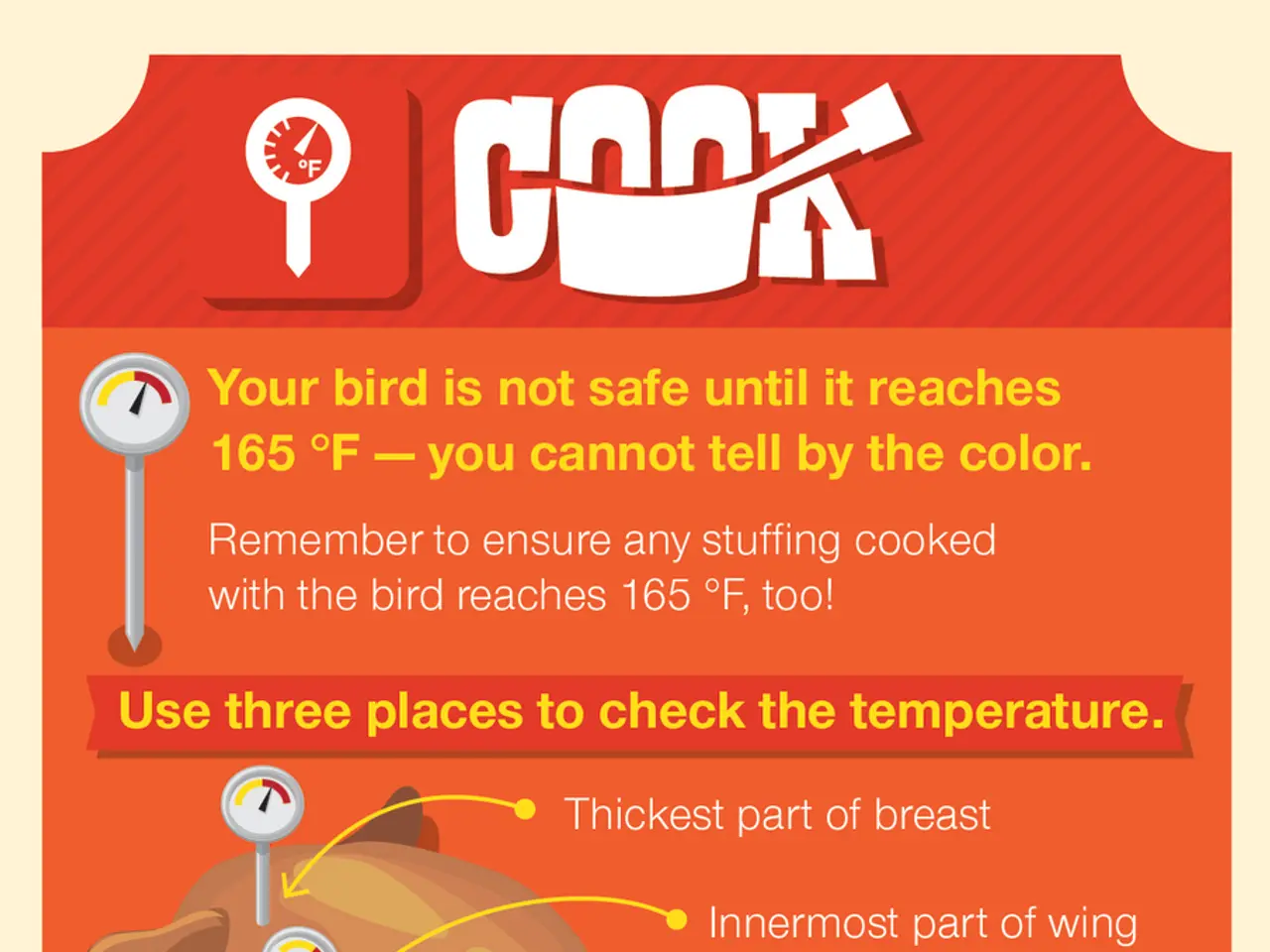Pregnancy and Chickenpox: A Health Concern
Chickenpox, a common childhood disease, can pose significant risks for pregnant women and their unborn babies. Here's what you need to know about the virus and its impact on pregnancy.
Chickenpox, caused by the Varicella zoster virus, is highly contagious. It is characterised by fever, itchy rashes, and body ache. Pregnant women who are not immune and have been in contact with a person carrying the virus have a high chance of contracting chickenpox.
If you get the virus between 28 and 36 weeks of pregnancy, the virus can stay inside the baby's body and not cause harm, but can reactivate once the baby is born or during his first year, causing shingles. Shingles, caused by the reactivation of the chickenpox virus, can be harmful for a newborn if they are exposed to it.
Chickenpox can be dangerous for adults, including pregnant women, and can lead to serious complications. For the mother, especially in the third trimester or with compromised lung function, chickenpox can cause severe complications such as varicella pneumonia, which may require hospitalization and advanced respiratory support. Rarely, it can also lead to hepatitis or encephalitis.
For the fetus and newborn, the risks depend on the timing of infection during pregnancy. If the infection occurs in the first to early second trimester (Weeks 7–20), there is a rare but serious risk (1–3%) of developing congenital varicella syndrome (CVS), which can cause skin scarring, limb deformities, neurological problems, eye defects, and developmental delays.
After 20 weeks, the risk of CVS decreases, but the fetus may still be affected. The virus can remain dormant and potentially cause shingles during early childhood. Maternal illness may increase the risk of preterm delivery, fetal growth restriction, and lead to the need for intensified prenatal monitoring.
During the peripartum period (five days before to two days after delivery), the newborn may develop neonatal varicella, which can be severe or life-threatening without maternal antibodies and requires rapid medical intervention.
Prevention involves screening for varicella immunity during prenatal care. Pregnant women who are not immune should receive the varicella vaccine only after delivery, not during pregnancy. Postexposure prophylaxis may be given if exposure occurs during pregnancy.
If you are planning to conceive, you can consider getting a chickenpox prevention vaccination, but it is recommended that you wait for at least three months after the second dose before trying to conceive.
If you develop chickenpox around the time of the delivery, or if your baby is born within a week of the development of the rash, he may develop chickenpox as well. In such cases, the doctor will give your baby an immunoglobulin medicine after his birth to reduce the severity of the infection.
After 36 weeks, it is likely that the baby will get the virus and be born with chickenpox. Treatment for chickenpox during pregnancy depends on the severity of the infection and may include OTC anti-viral medications.
In summary, chickenpox in pregnancy is not only a skin ailment but can lead to serious maternal respiratory illness and significant fetal risks such as congenital varicella syndrome, neonatal varicella, preterm birth, and growth restrictions depending on the gestational timing of infection. It is crucial for pregnant women to take necessary precautions and seek medical advice if exposed to chickenpox.
[1] Centers for Disease Control and Prevention. (2021). Pregnancy and Chickenpox. Retrieved from https://www.cdc.gov/chickenpox/pregnancy.html [2] National Health Service. (2021). Chickenpox in pregnancy. Retrieved from https://www.nhs.uk/conditions/chickenpox/pregnancy/ [3] American College of Obstetricians and Gynecologists. (2021). Chickenpox in Pregnancy. Retrieved from https://www.acog.org/womens-health/faqs/chickenpox-in-pregnancy [4] World Health Organization. (2021). Chickenpox. Retrieved from https://www.who.int/news-room/fact-sheets/detail/chickenpox [5] UpToDate. (2021). Management of chickenpox in pregnancy. Retrieved from https://www.uptodate.com/contents/management-of-chickenpox-in-pregnancy
[1] Pregnant women should be aware of the potential risks associated with chickenpox, a disease caused by the Varicella zoster virus, during their pregnancy.
[2] Due to the increased risk of complications, especially in the third trimester or for women with compromised lung function, it is advised for pregnant women to receive the varicella vaccine after delivery, not during pregnancy.




